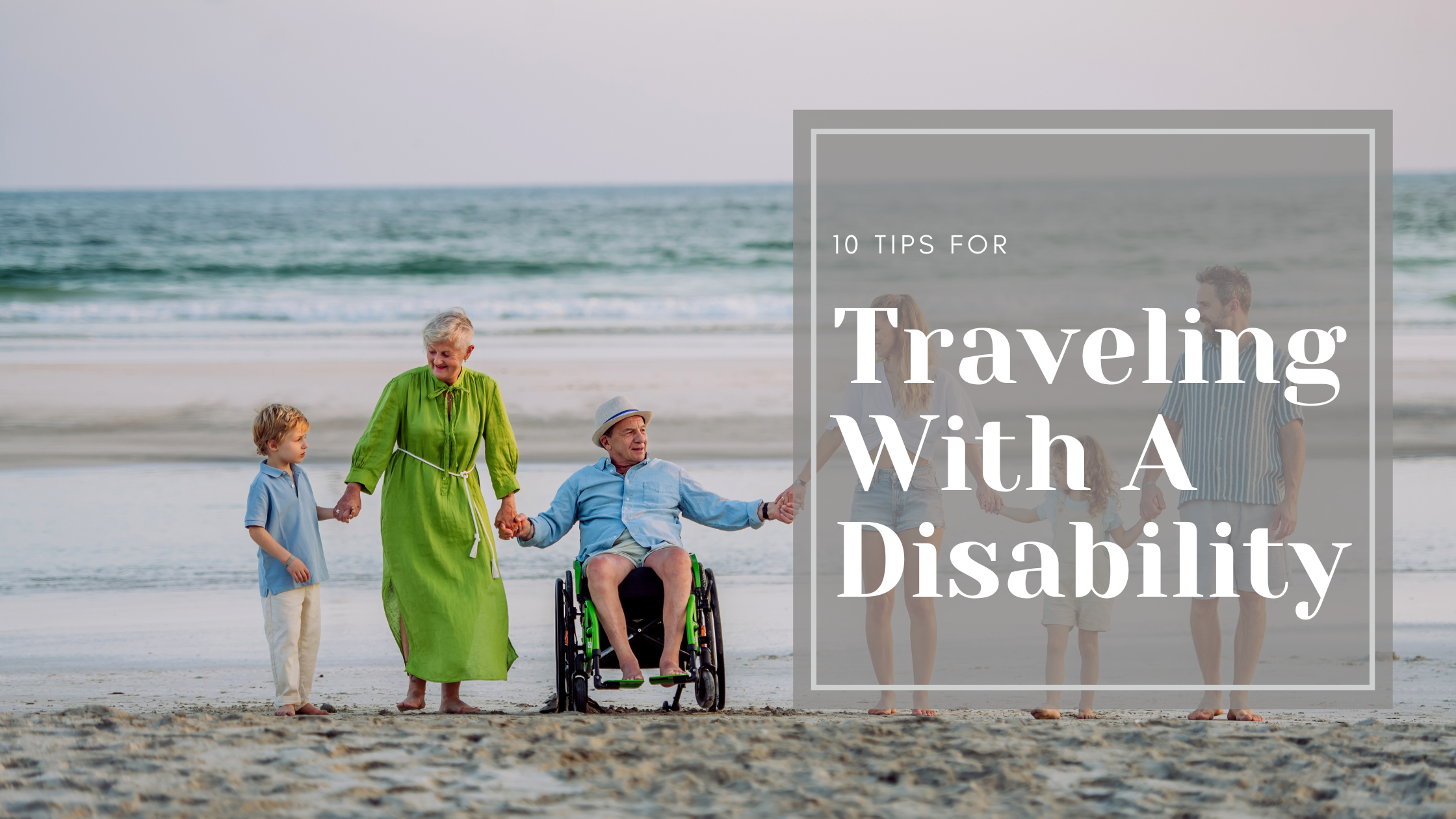Traveling with a disability can be a rewarding experience, but it requires careful preparation to ensure that your trip is as smooth and comfortable as possible. Whether you're traveling for business, leisure, or a family vacation, taking the time to plan ahead can alleviate stress and help you handle any unexpected challenges, for yourself or your loved one with a disability. Here are 10 essential steps you should take before embarking on your journey.

1. Consult Your Healthcare Provider
Before you make any travel plans, it’s crucial to consult with your healthcare provider. They can advise you on any precautions you should take and give you guidance based on your specific health condition. Be sure to discuss the physical demands of your trip and any potential issues you might encounter. It’s also a good time to review your medications, and if you’re traveling internationally, ask about any vaccines or travel-related health tips specific to your destination.
Ensure you have an updated supply of medications and any necessary prescriptions for the duration of your trip. If you require specific medical equipment or devices, your healthcare provider may need to sign off on documents that allow you to travel with them. Additionally, ask for a letter explaining your disability or medical condition, as this can be helpful if you need special accommodations or assistance during travel.
2. Organize Your Medical Records and Medications
Having your medical records easily accessible during your travels is essential. Organize your medical documents, prescriptions, and other important information in one place. You should also make copies in case anything is lost or misplaced. Keep this information handy in case of a medical emergency. A good idea is to keep these documents in your carry-on bag or a travel wallet for quick access.
3. Research Your Destination
Not all destinations are equally accessible, so it's important to research your location before you go. Look into accessible accommodations, transportation, and attractions to make sure they meet your needs. Contact hotels or resorts directly to confirm they have accessible rooms, elevators, or other necessary features. Likewise, check local transportation options to ensure they are equipped to accommodate your mobility aids or other needs.
4. Familiarize Yourself with the Airline’s Policy
Airlines have different policies when it comes to traveling with mobility aids, medical devices, and assistive equipment. Prior to booking your flight, it’s important to familiarize yourself with these policies. Ensure that your mobility device can be accommodated on the flight, and inquire about the airline’s policies for carry-on medical supplies. Some airlines even allow you to request seating accommodations that can make your trip more comfortable. This is also a great time to book any special equipment at your destination, like a wheelchair or a hospital bed, if needed.
5. Pack an Emergency Health Kit
Packing an emergency health kit is a must, especially when traveling with a disability. Include any necessary medications, first aid supplies, and emergency health gear such as extra bandages, antiseptics, or specialized devices. Depending on your condition, you may also need specialized equipment like a breathing machine, insulin, or a spare cane or walker. Be sure to pack any devices that could assist you in an emergency, including a phone charger or a backup power supply for medical equipment.
6. Request Special Accommodation Early
Many hotels, resorts, and airlines require advance notice for special accommodations, so be sure to request these as early as possible. If you rely on a service animal, make arrangements for your pet’s stay and travel needs well in advance. For hotel rooms, you may need to request an accessible room with features like wider doorways, grab bars, or a roll-in shower. Communicating your needs early will ensure that the necessary arrangements are made before your arrival.
7. Check Travel Insurance
Travel insurance can be a lifesaver, especially if you’re dealing with pre-existing medical conditions. Before purchasing insurance, check to see if your policy covers the specific needs related to your disability, such as coverage for medical emergencies or cancellations due to health reasons. Review the fine print to understand what’s included in case of a medical emergency abroad, including evacuation services if required.
8. Locate Nearby Medical Facilities
No one wants to think about emergencies while on vacation, but it’s a good idea to know where the nearest medical facilities are just in case. Research hospitals, clinics, or pharmacies near your accommodations. Keep a list of these places handy in your medical kit or on your phone. This simple step can provide peace of mind, knowing that medical help is within reach should you need it during your trip.
9. Review TSA Policies
Going through airport security can be a confusing and stressful process, especially when traveling with a disability. Review the latest TSA policies for medical equipment, mobility aids, and accessibility accommodations. Know what you’re allowed to bring through security, such as medications, syringes, or oxygen tanks, and any documentation that might be required. Many airports also provide specific accommodations for travelers with disabilities, including expedited security lines, so be sure to inquire about these options beforehand.
10. Communicate with Someone You Trust
Lastly, it’s always a good idea to communicate your travel plans with a trusted friend or family member. Make sure they know your itinerary, accommodation details, and emergency contacts. This person can act as a point of contact in case anything goes wrong during your travels and can assist with any medical issues if needed. Staying connected with someone back home can offer extra reassurance throughout your trip.
---
By following these steps, you’ll be well-prepared for a successful trip. Traveling with a disability may require extra planning, but with the right approach, you can enjoy a stress-free and fulfilling journey. Safe travels!